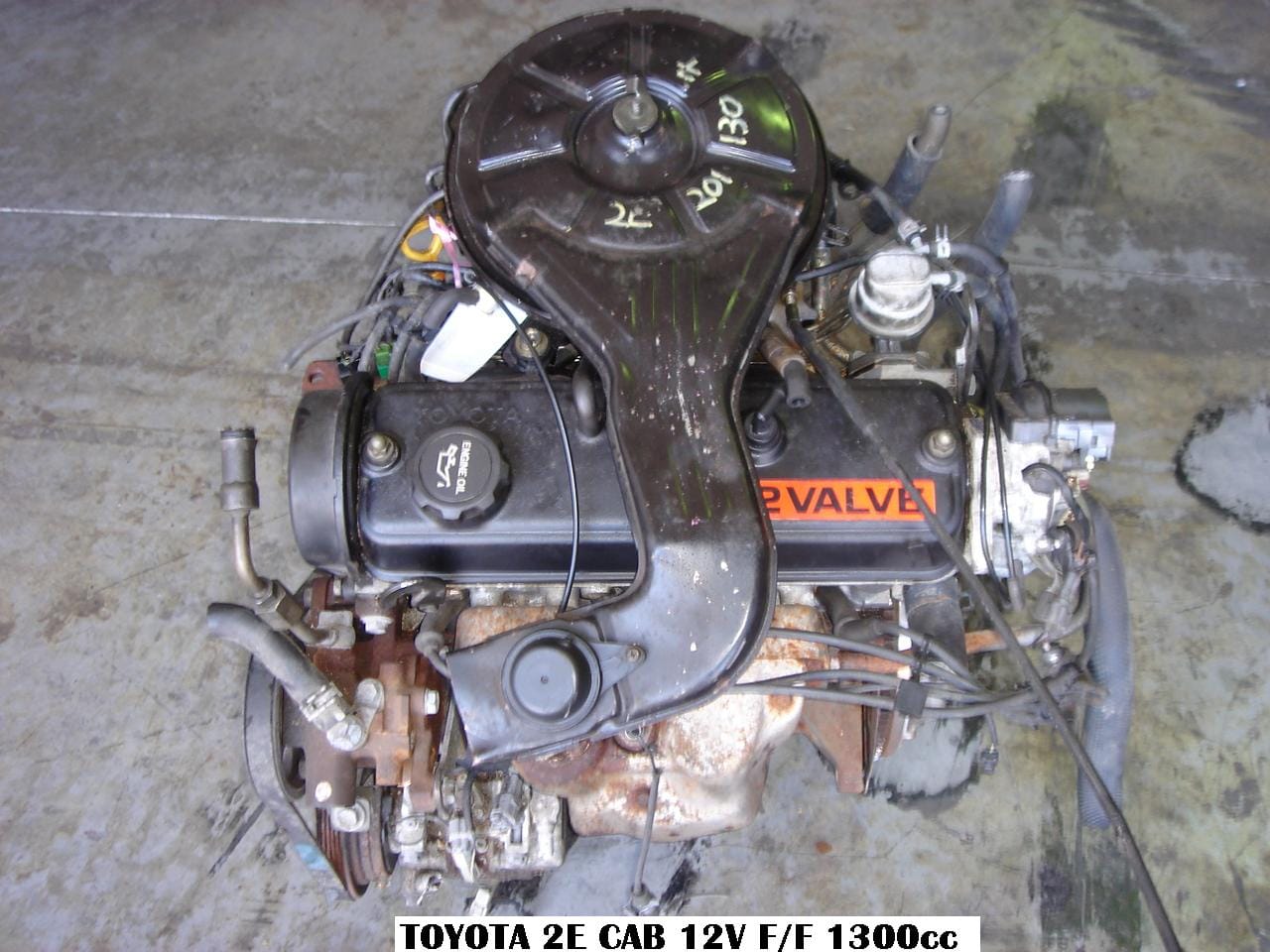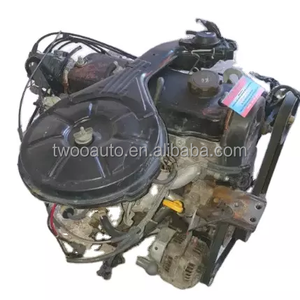Is the Toyota Tazz the Right Car for You? A Guide to Its Features and Value
Is the Toyota Tazz the Right Car for You? A Guide to Its Features and Value
Blog Article
Explore the most up to date Fads in Engine Modern Technology Through Tazz
In the swiftly progressing landscape of automobile technology, Tazz stands at the forefront, highlighting substantial improvements in engine systems that prioritize both innovation and sustainability. From crossbreed engines that enhance fuel performance to the introduction of hydrogen fuel cells, the fads forming modern powertrains are not just improving performance yet likewise addressing essential environmental challenges.
Crossbreed Engine Innovations
Hybrid engine technologies represent a pivotal change in automobile modern technology, integrating the advantages of inner burning engines with electric propulsion systems. This combination not only enhances gas effectiveness but likewise decreases exhausts, meeting increasingly rigorous ecological policies. By utilizing both power resources, hybrid engines can enhance efficiency, providing power when required while conserving gas throughout less requiring motoring conditions.
Current advancements in crossbreed modern technology include enhancements in battery performance and regenerative braking systems. These advancements permit higher power recuperation during deceleration, which can be rerouted to assist in acceleration or power auxiliary systems. In addition, manufacturers are focusing on small styles and light-weight products to make best use of the efficiency of hybrid powertrains.
The development of plug-in hybrids has also expanded the market, allowing chauffeurs to charge their vehicles making use of typical electric outlets. This feature frequently allows for significant all-electric range, further decreasing dependence on traditional fuels. tazz. As the auto sector remains to advance, hybrid engine modern technologies are anticipated to play a critical duty in linking the space between traditional cars and fully electrical versions, supplying a transitional option that caters to diverse customer demands and preferences
Advancements in Electric Powertrains
The automobile landscape is rapidly advancing, with electrical powertrains emerging as a leading force in lasting transportation. Advancements in electrical automobile (EV) technology are significantly boosting effectiveness, performance, and customer experience. Trick developments consist of enhancements in battery chemistry, which have increased energy density, minimized billing times, and prolonged total battery life.
Solid-state batteries, as an example, assure to reinvent the marketplace by supplying better security and efficiency compared to standard lithium-ion cells. Additionally, innovations in regenerative braking systems are allowing lorries to recover power during slowdown, adding to overall performance.
Along with battery technology, electric motor styles are coming to be more advanced. Advancements such as incorporated electric motors and advanced thermal management systems are assisting to maximize power distribution and reduce weight, ultimately improving automobile characteristics.

Collectively, these advances underscore the dedication to change in the direction of cleaner, a lot more effective transportation solutions, placing electrical powertrains at the leading edge of automotive development.
The Rise of Hydrogen Fuel Cells
Significantly, hydrogen gas cells are acquiring traction as a viable choice to standard internal burning engines and battery electrical cars. This technology uses the chemical power stored in hydrogen, transforming it into electrical power through an electrochemical response with oxygen. The primary result of this procedure is water, making hydrogen fuel cells an eco friendly alternative with no emissions at the tailpipe.

Car manufacturers are significantly buying hydrogen fuel cell technology, acknowledging its capacity for long-range applications and quick refueling capacities that rival conventional fuels. Additionally, industries such as durable transportation and public transportation are especially fit for hydrogen gas cells, where battery electrical remedies might fail as a result of weight and array constraints.
As research and investment remain to broaden, hydrogen gas cells are poised to play a considerable role in the future landscape of tidy transport and power remedies.
Enhancements in Internal Burning Engines
Advancements in interior burning engine (ICE) modern technology are transforming typical automobiles to meet modern-day ecological standards and efficiency expectations. Straight fuel shot, for instance, permits for much better atomization of gas, leading to more complete combustion and enhanced power outcome.
Additionally, turbocharging has actually acquired prestige, enabling smaller sized engines to provide greater performance without the weight of bigger engines - tazz. This technology not just boosts performance but likewise adds to reduce gas consumption. Variable shutoff timing systems are also being fine-tuned, enabling engines to adapt to numerous driving conditions for enhanced torque and responsiveness
Moreover, making use of light-weight materials in engine building and construction is becoming common, further improving gas efficiency by minimizing total vehicle weight. Engine control systems (ECUs) are significantly sophisticated, allowing real-time changes that optimize performance and discharges.
These improvements jointly signify a critical change in ICE innovation, straightening with global sustainability goals while still offering the efficiency vehicle drivers get out of their vehicles. As the market progresses, these improvements remain to shape the future of standard auto design.
Future Fads in Engine Efficiency
Significant developments in engine effectiveness are expected as makers concentrate on incorporating sophisticated modern technologies to fulfill rigorous ecological laws and customer needs. The change in the direction of electrification, crossbreed systems, and alternate fuels is reshaping the automobile landscape, driving advancements that improve fuel economic climate and minimize discharges.
One of the key fads is the execution of sophisticated materials and go to this site producing techniques. Lightweight compounds and high-strength alloys contribute to reduced vehicle weight, hence boosting general effectiveness. Additionally, the fostering of turbocharging and variable shutoff timing innovations permits boosted power result from smaller engines, further boosting gas economic climate.

Verdict
In verdict, the exploration of engine modern technology exposes substantial developments that focus on sustainability and effectiveness. Developments in crossbreed engine systems, electric powertrains, and hydrogen gas cells demonstrate a commitment to minimizing exhausts while improving efficiency. Improvements in internal burning engines and a focus on lightweight materials add to total engine performance. As the vehicle industry remains to advance, these trends will play a crucial duty in forming a cleaner and more lasting future for transport.
From crossbreed engines that optimize fuel effectiveness to the introduction of hydrogen fuel cells, the trends shaping modern powertrains are not just boosting efficiency yet additionally addressing crucial environmental challenges.Hybrid engine innovations represent a pivotal change in auto modern technology, incorporating the advantages of interior combustion engines with electric propulsion systems.Furthermore, turbocharging has gained prominence, permitting smaller sized engines to provide higher performance without the weight of bigger engines. In addition, the adoption of turbocharging and variable valve timing technologies permits for enhanced power outcome from smaller engines, better boosting fuel economy.
Improvements in inner combustion engines and a Our site focus on light-weight materials contribute to total engine effectiveness.
Report this page